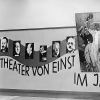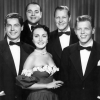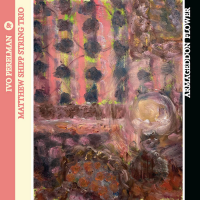Home » Search Center » Results: Glenn Miller
Results for "Glenn Miller"
Results for pages tagged "Glenn Miller"...
Glenn Miller

Born:
Shortly after the beginning of the 20th century, in a small rural Southwestern Iowa town, a boy was born to Elmer and Mattie Lou Miller. The date was March 1, 1904 and the town was Clarinda. The boy that was born that night was named Alton Glen Miller (later changed to Glenn) and when he uttered his first cry, Clarinda heard Glenn Miller°ѓs first "moonlight serenade." Glenn°ѓs first serenade was not particularly unique as it had been sung by children for centuries and was barely heard across South 16th Street. However, his second Moonlight Serenade was a composition he wrote while studying music under Dr
Tantilla's Majestic Grip on Richmond's Scene

by Troy Hoffman
The “South's most beautiful ballroom," Tantilla Gardens, at 3817 W. Broad Street, in Richmond, Virginia, was an acoustically treated structure built by the Byrd Theatre Group in 1933. The building stretched a block long, featuring nightly dancing, along with the Nation's greatest dance orchestras. This all took place on the second floor, atop Tiny Town Bowling ...
Jazz in Nazi Germany: The Music That Wouldn°ѓt Die

by Joe Alterman
This article was originally published on Moment Magazine. Music, at its core, is freedom. It cannot be caged by ideology or controlled by propaganda. The Nazis understood that, which is why they tried so desperately to suppress it, to twist it, to erase it. And yet, even in those darkest of times, music found ...
Introducing Vocalist Clara Campbell

by Sanford Josephson
More than 100 vocalists competed in this year's Blues Alley Ella Fitzgerald Vocal Competition. What separated Clara Campbell from the other applicants, according to vocalist/judge Nicole Zuraitis, “was her unique voice. She didn't sound like someone else. And, the arrangements were exciting and interesting. She didn't play it safe, and I think that's the most important ...
About The Modernaires
Instrument: Band / ensemble / orchestra
Results for pages tagged "Glenn Miller"...
The Modernaires

Active since:
Formed in the mid-1930s, the Modernaires began as a male vocal quartet known for their tight harmonies and polished sound, initially gaining attention through radio broadcasts and studio work. Their big break came in 1941 when they joined forces with bandleader Glenn Miller, adding Paula Kelly as the female lead and completing the signature lineup. With Miller, the group became a cornerstone of the swing era, contributing to classics like “Chattanooga Choo Choo” and “Juke Box Saturday Night.” Their smooth blend and rhythmic precision helped redefine vocal jazz, bridging the gap between pop sensibility and jazz sophistication in an era dominated by big bands.
Emilio Solla: Uncovering Music Already There

by Dean Nardi
In the '40s, the jazz scene was dominated by bebop with its roots in swing music, formerly the purview of the big band era. Trios and quartets became the combo of choice for players such as Charlie “Yardbird" Parker and Thelonious Monk, who took the harmonies of the old jazz and superimposed them on chord substitutions, ...
Glenn Miller: Holiday Season Radio Broadcasts

There's something about Glenn Miller's holiday broadcasts that seem timeless. Miller, of course, fronted two bands: His stateside orchestra from 1938 to early fall 1942 and then his Army Air Force Band from the late fall of 1942 to December 1944, when he perished over the English Channel flying from London to Paris. The latter band ...
Have A Holly, Jazzy Christmas

by Kurt Ellenberger
In my music history classes, particularly in November and December, students have often asked me about the relationship between jazz and Christmas: “Why are so many popular Christmas songs so jazzy?" It is a good question--indeed, many of the most popular secular Christmas music does have a jazz flavor, while a few are actually jazz. There ...
USAF Airmen of Note: Aim High/The 2024 Jazz Heritage Series

by Jack Bowers
Aim High, recorded as part of the 2024 Jazz Heritage Series, is the forty-sixth album by the U.S. armed services' premier jazz ensemble, the Airmen of Note, founded in 1950 to honor the tradition of Major Glenn Miller's Army Air Corps dance band, which entertained the troops during World War II until Miller's untimely death in ...



 Buy Now
Buy Now



















